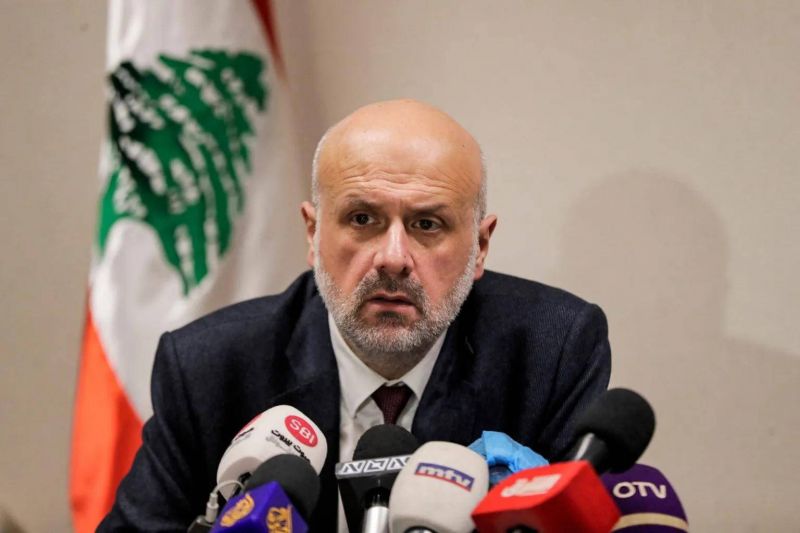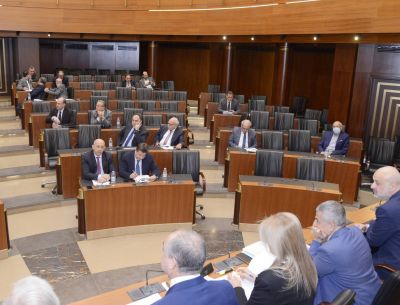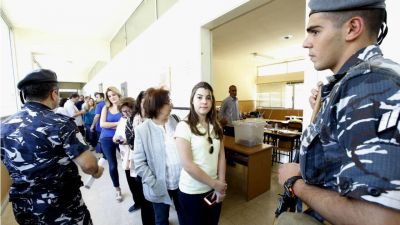
Lebanon's Interior Minister Bassam Mawlawi in Beirut on Jan. 25, 2022 (Credit: Anwar Amro/AFP)
BEIRUT — Caretaker Interior Minister Bassam Mawlawi provided information on Monday during a press conference regarding the organization of the municipal elections, which, he assured "will be held on time."
"We are committed to calling on the electorate," he announced, saying he would publish on Monday afternoon decisions related to the submission of candidate documents and the preparation of polling stations across the country.
"The municipal elections will be held on time and according to the law," Mawlawi promised.
“The law states that the call to the electorate for the municipal elections must be issued one month before they are due to be held, in May, and this is what I am doing,” Mawlawi added.
The issue of when municipal elections should take place, as well as how they will be financed, is at the forefront of political disagreements.
The political vacuum brought about by absence of a president since Michel Aoun's term office ended on Oct. 31 and the fact that the cabinet is presently serving in a caretaker capacity, could very well extend to the municipal level of state institutions if the elections are postponed. In the absence of municipal elections, some 1,000 municipal councils would likely be dissolved by May 31.
Mawlawi, however, assured that despite “the setbacks that have become the norm in Lebanon, we will continue to do what’s right."
"During the parliamentary elections, many thought that the process would be delayed, but that did not happen,” he added, in reference to parliamentary elections that went ahead as scheduled last May.
Mawlawi said the municipal elections will “begin on May 7 in the North and Akkar, May 14 in Mount Lebanon, May 21 in Beirut, the Bekaa and Baalbek-Hermel, and May 28 in the south and Nabatieh.”
Funding
“We call on the government and politicians to secure the necessary funds for the elections, as municipal councils are necessary for development, disaster management and standing by the citizens,” Mawlawi said.
He pointed out that "the cost of the elections will be secured by the Lebanese state, whether from the transfer of credit or special drawing rights [from the International Monetary Fund], while some funding will be covered by the UNDP [the United Nations Development Program]."
“The minister already notified the premiership’s office that a sum of $8 million is needed for the organization of the elections. In the wait for the amount to be secured, Mawlawi will comply with the law in force and call for an election,” a source close to the interior minister told L’Orient-Le Jour last week.
Legal expert and former Interior Minister Ziyad Baroud told L'Orient-Le Jour that in 1967 the Council of State ruled that "a caretaker government can convene to deal with legal deadlines” and that this ruling still applies.
Last week, the Free Patriotic Movement, which had until now opposed cabinet meetings, said it was in favor of such a meeting to decide whether or not to hold the elections.
In the midst of a presidential vacuum, the municipal elections could prove a bellwether of party popularity — one that no political party in power, especially on the Christian scene, appears willing to enter.
Geagea's accusations
The head of the Lebanese Forces Samir Geagea said Monday that “those who aim to scuttle the municipal elections are the moumana [pro-Hezbollah axis] and ‘Free Patriotic Movement’ parties, and this is very clear from the closed sessions they have been having.”
“Whoever wants to finance the elections by proposing a law and approving a law does not want the elections to be held because no legislative sessions will be held in the absence of the president,” Geagea said.
“They spend millions of dollars in drawing rights for all sectors, and thus they can withdraw an amount for the municipal elections, and therefore they should not be disrupted under any circumstances,” Geagea concluded.

